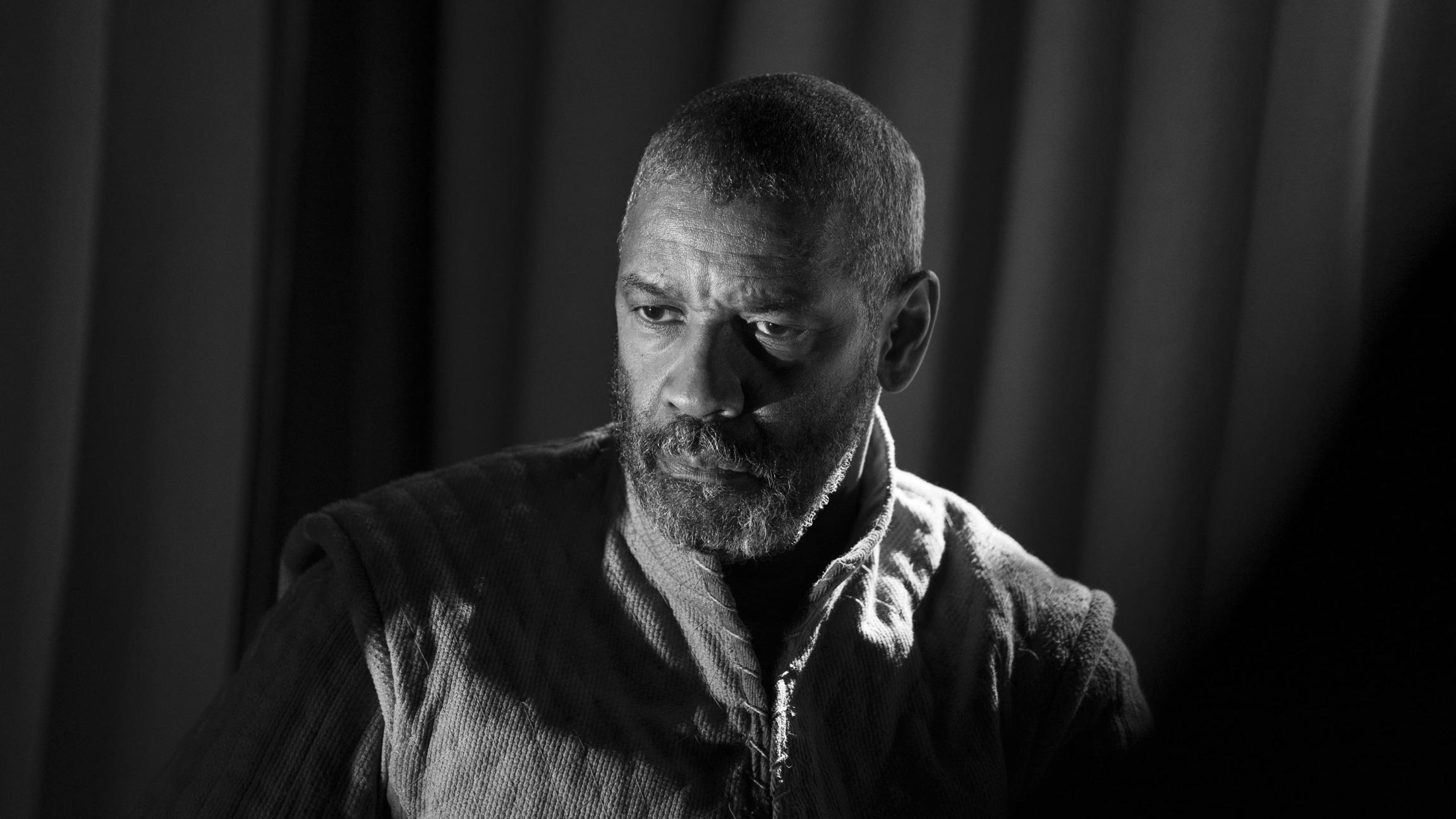
In Shakespeare's Macbeth, the brave Scottish general Macbeth receives a prophecy from the three witches that he will one day become king of Scotland. Out of ambition and the encouragement of his wife, Macbeth assassinated King Duncan and made himself king.
Tortured by self-blame and fantasies, he quickly degenerated into a tyrant, and had to protect himself through persistent ruthlessness, suppressing hostility and suspicion.
The Holocaust and Civil War made Macbeth and his wife arrogant and mad, until their demise (from Wikipedia)
Personally, I think the biggest highlight of the movie is the perfect integration of the stage play into the style of the movie.
The black and white photography highlights the old and desolate, the transition details are amazing, the light and shadow cooperate to reflect the psychology of the characters, and the shape of the crow witch is amazing... Of course, when the stage play is put on the screen, the sparks of the two art forms collide.
The first is the lines. As one of Shakespeare's four major tragedies, (although I can't understand it without subtitles in the cinema), (but it does not affect it at all) the lines are classic and magnificent, especially the huge "TOMORROW" on the screen shows the "nihilism" Monologue: Tomorrow, Tomorrow, Tomorrow..." (from Wikipedia) In this way, the black-and-white image highlights the emptiness of Macbeth's soul.
The second is the performance, as the audience can observe more facial details of the actors and enjoy more special effects than when watching the stage play; the stage set is also particularly wonderful, the actors wear ancient costumes, but many scenes seem to have come to modern times, neat and tidy The geometric composition and scene layout are pleasing to the eye.
Finally, and the biggest highlight, this movie is similar to Peking Opera. It only uses the conflict and dialogue between three people to give the audience the experience and oppression of a war. The way of expression is real and unpretentious. But you can feel the majesty of war and the cruelty of slaughter.
On the one hand, this approach of seeing the big from the small is (supposedly) the specialty of the Coen brothers and the A24 producers (using small performances to show big scenes).
But I think what is more important is the charm of the combination of stage play and film: 1. Further improve the design of theatrical background through computer technology to present better visual effects to the audience; Understand the literature more deeply through the details of the movie; 3. Integrate the time and space limitations and transcendence of the drama into the movie, and experience the infinite imagination brought by the limited drama in the infinite movie... a very wonderful experience.